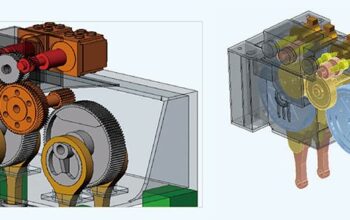Employee monitoring solutions have become indispensable tools for businesses seeking to enhance productivity, ensure security, and streamline operations in today’s digital work environment. These software solutions offer a range of benefits that empower organizations to manage their workforce efficiently while fostering a conducive and secure workplace culture.
Benefits of using Employee Monitoring Solution
1. Enhanced Productivity and Performance
Employee monitoring solutions provide insights into employee activities, allowing businesses to gauge productivity levels accurately. By tracking work hours, tasks completed, and applications used, employers can identify inefficiencies, optimize workflows, and offer targeted training or resources to improve performance.
2. Data-driven Decision-making
Access to comprehensive data on employee activities enables informed decision-making. Employers can analyze trends, identify patterns, and make strategic decisions based on real-time insights, ultimately driving operational efficiency and resource allocation.
3. Improved Time Management
Monitoring solutions aid in tracking time spent on tasks and applications. This allows for better time management, enabling businesses to allocate resources efficiently, prioritize essential tasks, and optimize work schedules to maximize productivity.
4. Identifying Training Needs
Insights from monitoring software help identify skill gaps and training needs within the workforce. Businesses can offer targeted training programs to enhance employee skills, ensuring they stay updated with industry trends and technologies.
5. Compliance and Security
Employee monitoring solutions play a crucial role in maintaining compliance and security standards within organizations. By monitoring online activities, businesses can prevent data breaches, ensure adherence to company policies, and safeguard sensitive information. It can also help you to stand against cyber threats.
6. Remote Work Management
In the era of remote work, monitoring solutions facilitate seamless management of remote teams. Employers can track remote employee activities, maintain communication, and ensure accountability, promoting a cohesive work environment regardless of location.
7. Encouraging Accountability and Fairness
Monitoring solutions foster a culture of accountability by ensuring employees are responsible for their tasks and actions. This transparency promotes fairness, as performance evaluations are based on objective data, minimizing biases and favoritism.
Implementing Employee Monitoring Solutions Effectively
- Clear Communication: Transparently communicate the purpose and scope of monitoring to employees, emphasizing its role in enhancing productivity and ensuring compliance. For example, Controlio can be deployed on the cloud or on-premises, and offers a free trial and a free plan for up to three users.
- Respect for Privacy: Respect employee privacy by focusing on work-related activities, avoiding intrusive monitoring, and adhering to legal regulations and ethical standards.
- Balanced Approach: Strike a balance between monitoring for productivity and fostering trust and autonomy within the workforce. Encourage open dialogue to address concerns and ensure a positive work culture.
- Continuous Improvement: Use insights from monitoring to implement targeted improvements, provide feedback, and create an environment conducive to growth and development.
Conclusion: Empowering Organizational Efficiency
Employee monitoring solutions offer a range of benefits that empower businesses to manage their workforce effectively, foster productivity, and maintain a secure work environment. By leveraging data-driven insights, businesses can make informed decisions, optimize workflows, and ensure compliance with regulations.
However, the successful implementation of monitoring solutions requires a balanced approach that prioritizes transparency, privacy, and fostering a positive workplace culture. When utilized responsibly and ethically, these solutions become indispensable tools in driving productivity, accountability, and organizational success in today’s dynamic work landscape.




